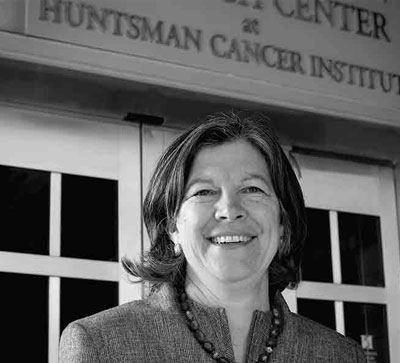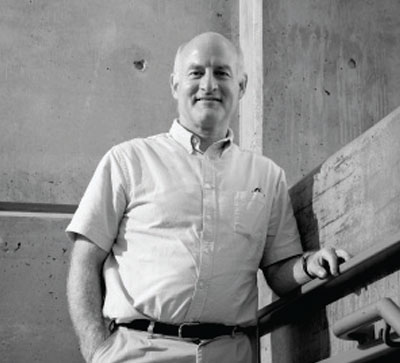Q&A

WINNING THE WAR ON CANCER BY REDESIGNING RESEARCH
An interview with Mary Beckerle, Ph.D., CEO and Director of Huntsman Cancer Institute
Q: We’ve discovered that cancer is a crafty, unpredictable opponent, which has made winning the war against cancer much more difficult than we originally thought. While the mortality rate for other diseases, like cardiovascular, has fallen dramatically, our gains against cancer have been more modest. Do you think cancer is an impossible problem?
A: Before 1971, we were looking for the single bullet, like a polio vaccine, that could eradicate cancer from the face of the earth. Then we learned more about cancer and discovered that it was actually many different diseases, and it seemed impossibly complex. Today, as we learn more about genetics, key pathways are emerging that allow us to target specific cancers, assess risk better and turn what was once a deadly disease into a chronic condition. Now I think everything is possible. It’s an incredibly exciting time. An absolutely unprecedented time.
Q: Since Huntsman Cancer Institute (HCI) is not a department, you’ve been able to create interdisciplinary teams that are organized around disease-oriented clusters. What is the advantage of that?
A: No single individual or discipline has the capacity to solve the cancer puzzle. We can only do it with transdisciplinary teams made up of exceptionally talented and innovative individuals. So we have to make sure that individual expertise is not ossified within the walls of a single department. At HCI, we extend the talents and contributions of individuals by developing transdisciplinary teams to catalyze the highest level of achievement. We work closely with 20 departments to recruit the best team players and brightest investigators, and then generally provide half of the research startup package, as well as lab space and strong research mentoring. It’s a win-win situation.
Q: What do you think is culturally different at HCI and how does that foster high-impact, collaborative research?
A: At HCI, we have the benefits of being in an academic setting, which provides the raw drive, creativity, individual aspiration and academic freedom, while at the same time feeling like a biotech startup, where everyone is working toward common goals. We also have a strong culture of sharing resources, which amplifies the impact of our investment. For example, the Utah Population Database, which has been overseen by HCI for many years, brings together genealogies with medical records and vital records like birth and death certificates. This remarkable database has become one of the most valuable and distinctive research resources in the country for discovery of human disease genes. Because of our genetically characterized families and the synergies that come from clinicians, scientists, and the community working together, we can do things here that can’t be done anywhere else in the world. I also think there’s something special about the way we look out at the landscape and see opportunities instead of constraints.

